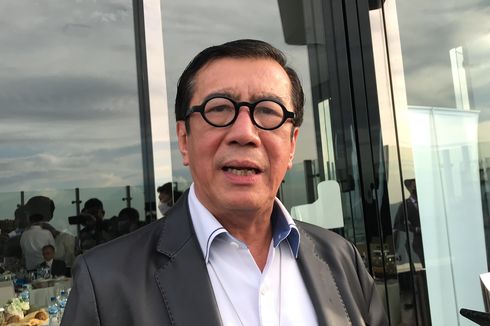KNews.id- Minister of Law and Human Rights (Menkumham) Yasonna H Laoly said the Second Home Visa provides an opportunity for Foreign Citizens (WNA) to settle in Indonesia.
This was conveyed by Yasonna while attending the dissemination of the latest Indonesian citizenship and immigration policy at the Consulate General of the Republic of Indonesia (KJRI) San Francisco, United States, Saturday (25/6).
“In his opening remarks at the opening of the activity, the Minister of Law and Human Rights said that in the Job Creation Law there were various new policies formulated regarding the duties and functions of the Ministry of Law and Human Rights. These duties and functions include the existence of a new legal entity, namely an individual company and a new type of visa known as a ‘second home’ visa,” said the release received from the Directorate General of Immigration, Wednesday (29/6).
“The Second Home Visa provides an opportunity for foreign nationals, including the elderly, who want to settle in Indonesia,” Yasonna said in the press release.
Apart from being used by foreigners who want to spend their retirement or old age in Indonesia, Yasonna said the visa can also be used by foreigners who, due to other provisions, cannot be accommodated with other types of residence permits.
“However, he must fulfill the stipulated provisions, especially related to the principle of benefits that make a positive contribution to improving the Indonesian economy,” said Yasonna.
Dual Nationality Children
He added that the policy in the field of citizenship, especially for children from mixed marriages, which had been eagerly awaited had finally been implemented. This policy is realized through the stipulation of Government Regulation (PP) Number 21 of 2022 concerning Amendments to Government Regulation Number 2 of 2007 concerning Acquiring, Losing, Canceling and Regaining Indonesian Citizenship.
Yasonna said the PP was a form of the state’s presence in providing legal protection and certainty for children born before the enactment of Law Number 12 of 2006 concerning Indonesian Citizenship who were not registered as Children with Dual Citizenship (ABG).
“Then also for children born before the enactment of the Indonesian Citizenship Law who have been registered as ABGs, but do not choose Indonesian Citizenship until the specified time limit ends,” he added.
Yasonna said PP 21/2022 allows children from mixed marriages who were born before the Indonesian Citizenship Law and children of both Indonesian citizens born in the ius soli country (so that they become ABG) can obtain Indonesian citizenship through the citizenship application mechanism to the president.
The application is submitted to the Minister of Law and Human Rights within a period of no later than two years from the promulgation of the PP, i.e. until May 2024.On the other hand, Immigration also provides facilities for ABG subjects who have been registered, namely exemptions from the obligation to have a visa, residence permit and re-entry permit through affidavit.Affidavit can be submitted at the Indonesian Representative Office abroad. If the child lives in Indonesia, he can apply at the immigration office according to his domicile. The affidavit facility can be used until the subject of ABG reaches the age of 21, at which point he must determine his nationality.
Director of Immigration Stay Permit Pramella Yunidar Pasaribu explained that the Directorate General of Immigration’s role is to provide visa and residence permit services to former Indonesian citizens who will return to live in Indonesia. The goal is to be able to play a role as a facilitator of national economic development.
“The mechanism is by applying for Immigration Document services to the residence permit service, as referred to in Law no. 6 of 2011 and PP No. 31 of 2013 to be given a residence permit as an ex-citizen with all the conveniences,” said Pramella.
“Ex-WNI have the freedom to work and do business according to the laws and regulations as ITAP holders. They will also have the opportunity to stay in Indonesia longer and have the opportunity to own property, according to the laws and regulations,” he added. (AHM)



